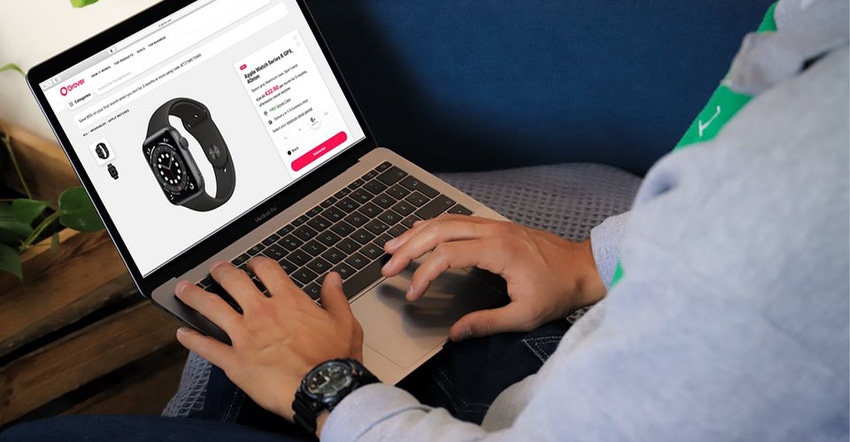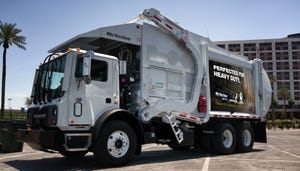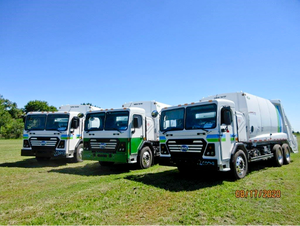How Grover’s Electronics Rental Model Works
When finance professional Michael Cassau was moving from London to Berlin for a year-long job, he had to decide what to do with his computer and other electronics.

When finance professional Michael Cassau was moving from London to Berlin for a year-long job, he had to decide what to do with his computer and other electronics. He could pay to transport them. Or he could unload them and buy replacements, only to have to purge or transport them too, when his work contract ended. Either option carried a high cost; there had to be a smarter way to meet his fluctuating needs, he figured.
From that experience and his thoughts around what to do, sprung the idea to launch Grover, a tech company that began in 2015 to provide consumers the opportunity to rent electronics on demand.
Today, in addition to its business-to-consumer model, Grover offers enterprises access-over-ownership of electronic devices, especially targeting startups and other growing operations. They can rent laptops, tablets, cameras, smartphones, and other items by subscription. As they expand, not only can they return what they’ve outgrown, they can upgrade or add products to meet their needs. Customers can continue month-to-month once their subscription ends, switch to a longer plan, or buy the technology.
Grover’s pitch is that potential customers not only have flexibility, but can reduce their electronic waste footprint, which has become an escalating priority as news headlines worldwide bring light to the growing e-waste problem. In 2021 alone about 63 tons of e-waste were discarded around the globe, according to World Economic Forum.
“Increasingly, companies are understanding that there is more than cost involved in how they procure electronics. They see that [procuring and managing devices] in a sustainable way is good for business,” says Sam Selldorff, vice president, B2B at Grover.
“Instead of an old phone or laptop sitting in a drawer or cabinet collecting dust it can be put back into circulation. This [rental] model works because technology has gotten good enough for electronics to last for years,” she says.
Business owners and managers hold onto only what they need and when they’re done with it, they can send it back to one of Grover’s warehouses where it is assessed for its condition, wiped of data, refurbished, and returned to the company’s inventory, lengthening the product’s life and diverting it from landfills. More than one million devices have been circulated in about seven years, with each device rented out about two to six times.
The company recently added to its portfolio a technology procurement and asset management platform. It’s a tool whereby customers tap into a dashboard to rent and manage subscriptions as well as track their devices in one place.
The rental model is especially catching on as electronics manufacturers quickly roll out new technologies, compelling end users to upgrade and update.
“It can be expensive. If a company has to buy 10 laptops that’s easily $20,000. Even with financing that’s a huge investment,” Selldorff says.
Then there are other considerations around ownership, such as having to resell and repair. (In case of damage, Grover covers 90 percent of the repair costs.)
“Taking on these responsibilities yourself means time away from doing your day-to-day job,” she says.
Grover’s model began in Europe, where it has been well received.
“In Europe there is definitely a trend for businesses to gravitate toward [a rental] model for sustainability reasons. We have customers saying they only want recirculated products as they are interested in improving their carbon footprint,” Selldorff says
The company recently launched in the U.S. where, like in Europe, it offers 5,000 products.
Based on Selldorff’s observations, conversations in the U.S. around sustainability are coming up more in the past several years, though the concept does not appear to be as strong a priority as in Europe.
“But I think we are too new to this market to identify a clear trend,” she says though she has observed that American companies are quick to adapt to new models when they work well and make good business sense and thinks the addition of the digital procurement and asset management tool will likely go over well.
“By having an automated system, you avoid time wasted doing manual work; reduce errors; and ultimately you improve overall efficiency of how you use technology in your business,” she says.
Companies have full visibility.
“You know for instance when it’s time to upgrade a device. And you see all the devices that are not assigned to people and can decide if you want to keep or return them, which is another way to help improve your sustainability,” Selldorff says.
She and the team educate on both the environmental and cost piece to try and get buy in.
“When we explain how they can improve their sustainability, especially, it becomes more about lifestyle and they seem to be open,” she says.
Grover’s business users work in healthcare, software, education, real estate, and food and beverage industries, among others.
Customer neue fische offers tech bootcamps in Germany, to prepare enrollees for IT careers.
The laptops it rents are sent to the students’ homes for the duration of the bootcamp, then reused by other customers or by the next neue fische students.
“This means that less equipment has to be manufactured, and the equipment is used in a more sustainable way.
“Before we were Grover customers, we needed to send the laptops on our own to our individual customers and perform the maintenance on the devices. As Grover’s business is focused on these processes, they can perform these steps more sustainably,” says Felix Seeliger, Business Improvement manager, neue fische.
Grover currently serves more than 10,000 companies across Germany, Austria, the Netherlands, and Spain.
Future plans are to strengthen its presence in the B2B space and ramp marketing of its procurement and asset management platform, optimized particularly for small and mid-sized businesses that need to manage hundreds of devices in multiple locations.
About the Author(s)
You May Also Like




